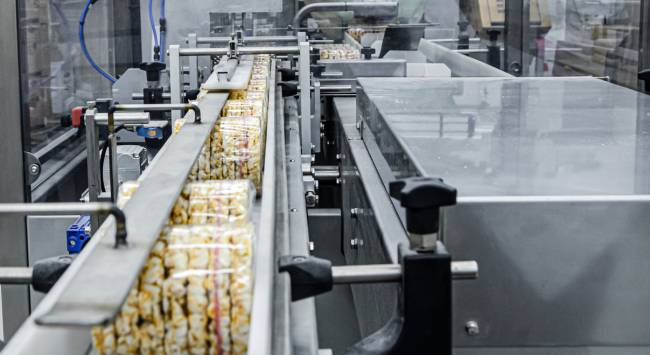
What Is White Label Manufacturing?

Increasing your brand’s offerings can be a daunting prospect, especially when it involves investing in costly manufacturing processes. Did you know there’s a cost-effective strategy known as white label manufacturing that allows you to expand your product line without having to invest heavily?
This article will guide you through the nuts and bolts of white label manufacturing, helping you to understand if this might be the right move for your business.
The TGE Difference
Looking to take your brand to the next level? At Taylor Gleason Enterprises, we specialize in bringing your product visions to life with our expert White Labeling Service. Dive into a world of seamless manufacturing and branding with us, and watch your business soar to new heights.
Key Takeaways
- Understanding White Label Manufacturing – White label manufacturing allows businesses to sell products made by a third-party manufacturer under their own brand name, helping companies expand their product offerings without handling production.
- Difference Between White Label and Private Label – While both models involve third-party manufacturing, white-label products are sold by multiple retailers under different brand names, whereas private-label products are exclusive to a single retailer.
- Advantages of White Labeling – Companies benefit from reduced production costs, faster market entry, and access to high-quality products without investing in manufacturing infrastructure.
- Industries That Benefit from White Labeling – White label manufacturing is widely used in cosmetics, food and beverages, electronics, supplements, and software, enabling businesses to offer diverse products with minimal investment.
- How White Label Manufacturing Works – A company partners with a manufacturer that produces generic products customized with the retailer’s branding, packaging design, and marketing strategy.
- Customization & Brand Identity – Businesses can tailor product packaging and branding while ensuring consistency with their company’s brand, enhancing customer recognition and loyalty.
- Cost Savings & Scalability – White-label services offer cost-effective solutions by eliminating the need for in-house production, making it easier for businesses to scale their product lines efficiently.
- Quality Control & Supplier Reliability – Partnering with reputable white-label manufacturers ensures high-quality products, adherence to industry regulations, and consistent supply chain management.
- Challenges in White Labeling – While white labeling provides convenience, businesses must carefully vet manufacturers, ensure product differentiation, and maintain brand reputation in competitive markets.
- Choosing the Right White-Label Partner – Businesses should assess potential white-label suppliers based on product quality, production capabilities, pricing, and reliability to ensure long-term success.
What is White Label Manufacturing?

White label manufacturing refers to the process of outsourcing the production of goods to a manufacturer who then sells those products to multiple retailers under their own brand name.
Definition of white label manufacturing
White label manufacturing is a business practice where a company produces unbranded items that retailers can buy, add their own logos or branding to, and sell as their own. For example, if a beverage manufacturer makes plain bottles of juice, different food brands could purchase the juice, put it in packaging with their logo on it, and sell these products under their names.
This allows businesses to offer distinct items without having the technical and financial burden of creating them from scratch. It allows companies to focus more on building their brand reputation while leaving production aspects to experienced manufacturers.
Example of white label products
White label manufacturing plays a substantial role in many industries, providing retailers with an opportunity to expand and diversify their product offerings. Here are a few examples of white label products commonly found in the food industry:
- Prepared Foods: Many grocery stores offer prepared meals under their own brand name. These meals are typically made by a white label manufacturer following the retailer’s specifications.
- Baked Goods: From gluten free cookies to cakes, many baked goods sold under store brands come from white label manufacturers.
- Canned Vegetables: Most canned vegetables you see in supermarkets with house brands are a prime example of white label products.
- Coffee and Tea: Many specialty coffee and tea blends sold under different brand names are actually produced by the same manufacturer.
- Condiments and Sauces: Items like ketchup, mustard, or barbeque sauce often come from a single source but get labelled differently for various stores.
- Breakfast Cereals: Many supermarkets sell cereals identical to famous brands but with their own branding on it – another prime example of white labelling in action.
The Benefits of White Label Manufacturing

White label manufacturing offers several benefits, including the ability to establish your brand quickly, provide fast solutions for customers, save time and money, increase your product portfolio, and reduce risks.
Fast way to establish your brand
Utilizing white label manufacturing expedites the brand-creation process significantly by streamlining production and allowing businesses to focus on building a strong brand identity. Instead of investing time and resources in product development and managing a complex manufacturing process, you can concentrate all your efforts on branding strategies, packaging design, and targeting the right market audience.
By partnering with white label manufacturers, you gain access to high-quality products that have already undergone rigorous quality control and are market-ready.
You can rebrand these private label products under your own brand name, ensuring they align with your business’s unique vision and values. This allows your own branded products to hit the market almost immediately, offering a competitive edge.
With this white label model, you eliminate the costly trial-and-error process of creating branded products from scratch while benefiting from the expertise of third party manufacturers.
Your business can quickly establish a strong foothold in the industry, offering multiple retailers a range of store brands that maintain consistency and credibility.
This approach is particularly advantageous for cosmetics brands, food brands, and other consumer-focused industries, as it enables them to launch cost-effectively while maintaining strict quality standards.
By leveraging white label services, businesses can achieve rapid market recognition, differentiating themselves from national brands and ensuring long-term success in highly competitive sectors.
Fast solutions
White label manufacturing offers fast solutions for food brands looking to establish their own brand quickly. By partnering with a white label manufacturer, food brands can save time and money by leveraging the existing production capabilities of the manufacturer.
This allows them to introduce new products to the market without having to invest in manufacturing equipment or processes. With white label manufacturing, food brands can focus on marketing and distribution while leaving the production expertise to the manufacturer, resulting in faster turnaround times and quicker entry into new markets.
Saving time and money
White label manufacturing can help food brands save both time and money. By partnering with a white label manufacturer, retailers can avoid the additional costs associated with building their own production facilities.
This means they don’t have to invest in expensive equipment or hire extra staff, allowing them to allocate their resources more efficiently. Additionally, working with a white label manufacturer eliminates the need for extensive product development processes, as the retailer can leverage existing formulas and recipes provided by the manufacturer.
This streamlined approach not only reduces time spent on research and development but also accelerates the time it takes to bring products to market. By saving time and money through white label manufacturing, food brands can focus on other aspects of their business such as marketing strategies and expanding their product portfolio.
Increased product portfolio
White label manufacturing offers food brands the opportunity to expand their product portfolio quickly and easily. By partnering with a manufacturer, brands can introduce new products without having to invest in developing their own manufacturing capabilities.
This means that food brands can offer a wider variety of products to meet the demands of different market segments and cater to various customer preferences. With an increased product portfolio, food brands have more options for attracting customers and generating revenue.
Lower risk
White label manufacturing offers food brands a lower risk option for expanding their product offerings. By partnering with a white label manufacturer, brands can avoid the upfront costs and risks associated with building their own manufacturing capabilities.
This allows them to focus on marketing, distribution, and building their brand reputation without the added burden of production. With white labeling, food brands have the opportunity to enter new markets and test new products, all while minimizing financial risks and maximizing potential profits.
So if you’re looking to expand your product portfolio with less risk involved, white label manufacturing may be the ideal solution for your food brand.
Disadvantages of White Label Manufacturing

Difficult to make changes to the product and packaging design once it has been finalized, limiting flexibility for customization.
Difficult to make changes
Making changes to white label products can be quite challenging. Since these products are manufactured by a third-party and sold under different brand names, retailers have limited control over the product itself.
This means that if you want to modify the ingredients, packaging, or any other aspect of the product, it may not be easy to do so. Instead, retailers often have to work within the constraints set by the manufacturer.
Therefore, it’s important for food brands considering white label manufacturing to carefully consider their desired level of customization and assess whether they can live with potential limitations in making changes to the products they sell.
Possible misunderstanding of brand vision
Misunderstanding the brand vision can be a disadvantage of white label manufacturing for food brands. When retailers collaborate with manufacturers to produce their products, there is a risk that the manufacturer may not fully understand or align with the retailer’s brand vision.
This can result in conflicting branding and a product that does not reflect the desired image or values of the retailer’s brand. It is crucial for retailers to clearly communicate their brand vision and ensure that the manufacturer is onboard before proceeding with white label manufacturing.
Food brands can avoid misunderstandings and create high-quality products that accurately represent their brand identity by carefully selecting a reliable manufacturer with strong quality control standards. By partnering with experienced white label manufacturers, businesses ensure that their own branded products meet the desired specifications, from ingredient sourcing to packaging design.
This collaboration allows them to maintain consistency across their product lines, ensuring that every item aligns with their brand’s messaging, values, and customer expectations.
Additionally, working with private label manufacturers enables food brands to customize their offerings while benefiting from an efficient manufacturing process. This approach reduces production risks, prevents costly miscommunications, and ensures that the final product resonates with the target market.
By leveraging white label services, food businesses can confidently introduce cost-effective, store brands that uphold their brand reputation while competing effectively with national brands in the marketplace.
Conclusion
White label manufacturing is a strategic business approach where retailers collaborate with manufacturers to produce products under their own private label brands. This allows retailers to quickly establish their private label branding, save time and money, and expand their product portfolio.
While there may be some disadvantages, such as limited customization options, white label manufacturing remains a valuable option for retailers looking to enter new markets and focus on marketing and distribution.
FAQs
1. What is white label manufacturing?
White label manufacturing is when a third-party manufacturer produces a product that multiple retailers can brand and sell as their own. This allows businesses to offer high-quality products without handling the production process themselves
2. How does white label branding differ from personal labeling?
White label products are sold to multiple companies, each branding them as their own, while private label products are made exclusively for a single company. Both models allow businesses to sell their own branded products without developing them in-house.
3. Can businesses use white label solutions for developing software?
Yes, businesses often utilize white label software as a cost-effective alternative to building their own programs from scratch.
4. What are some advantages of using white label services?
Benefits of using white labor services include reducing production costs, increasing product range without heavy investments, and allowing more focus on other areas such as marketing. Selling white-label products helps businesses expand their product lines quickly and cost-effectively. It reduces production costs, eliminates manufacturing risks, and allows companies to focus on marketing and sales rather than product development.
5. How Do I Choose a Reliable Manufacturer for My Own Brand?
Look for white-label suppliers with a strong reputation, high-quality control standards, and flexible service offerings. A good manufacturer should provide consistent products, meet regulatory requirements, and align with your brand identity and target market.
6. Can White Label Brands Compete with National Brands?
Yes! White-label brands can offer high-quality products comparable to national brands, often at a lower price. By building strong branding, effective marketing, and competitive pricing, businesses can attract loyal customers.
7. What Are the Key Steps in the White Label Model?
The white label model involves selecting a product, partnering with a third-party manufacturer, customizing packaging and branding, and launching the product under your company’s brand. This allows businesses to introduce new products to sell without investing in their own production facilities.




